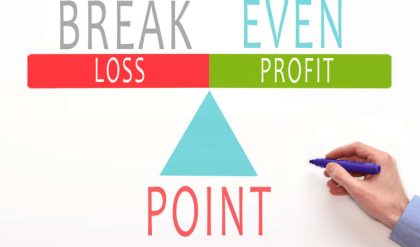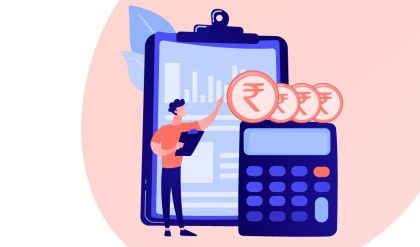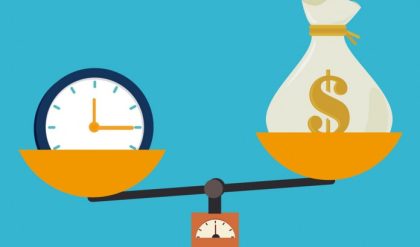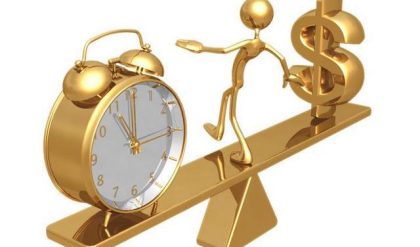Introduction
Definitions and Basics
● Definition: Market failure, from Answers.com
● An economic term that encompasses a situation where, in any given market, the quantity of a product demanded by consumers does not equate to the quantity supplied by suppliers. This is a direct result of a lack of certain economically ideal factors, which prevents equilibrium….
● Externalities, by Bryan Caplan, from the Concise Encyclopedia of Economics
● Positive externalities are benefits that are infeasible to charge to provide; negative externalities are costs that are infeasible to charge to not provide. Ordinarily, as Adam Smith explained, selfishness leads markets to produce whatever people want; to get rich, you have to sell what the public is eager to buy. Externalities undermine the social benefits of individual selfishness. If selfish consumers do not have to pay producers for benefits, they will not pay; and if selfish producers are not paid, they will not produce. A valuable product fails to appear. The problem, as David Friedman aptly explains, “is not that one person pays for what someone else gets but that nobody pays and nobody gets, even though the good is worth more than it would cost to produce.”…
● Research and development is a standard example of a positive externality, air pollution of a negative externality….
● Public Goods and Externalities, by Tyler Cowen, from the Concise Encyclopedia of Economics
● Most economic arguments for government intervention are based on the idea that the marketplace cannot provide public goods or handle externalities. Public health and welfare programs, education, roads, research and development, national and domestic security, and a clean environment all have been labeled public goods….
● Externalities occur when one person’s actions affect another person’s well-being and the relevant costs and benefits are not reflected in market prices. A positive externality arises when my neighbors benefit from my cleaning up my yard. If I cannot charge them for these benefits, I will not clean the yard as often as they would like. (Note that the free-rider problem and positive externalities are two sides of the same coin.) A negative externality arises when one person’s actions harm another. When polluting, factory owners may not consider the costs that pollution imposes on others….
● Markets can fail if there are no property rights and negotiation is costly. The Coase Theorem: Ronald H. Coase, biography from the Concise Encyclopedia of Economics
● “The Problem of Social Cost,” Coase’s other widely cited article (661 citations between 1966 and 1980), was even more path-breaking. Indeed, it gave rise to the field called law and economics. Economists b.c. (Before Coase) of virtually all political persuasions had accepted British economist Arthur Pigou’s idea that if, say, a cattle rancher’s cows destroy his neighboring farmer’s crops, the government should stop the rancher from letting his cattle roam free or should at least tax him for doing so. Otherwise, believed economists, the cattle would continue to destroy crops because the rancher would have no incentive to stop them.
● But Coase challenged the accepted view. He pointed out that if the rancher had no legal liability for destroying the farmer’s crops, and if transaction costs were zero, the farmer could come to a mutually beneficial agreement with the rancher under which the farmer paid the rancher to cut back on his herd of cattle. This would happen, argued Coase, if the damage from additional cattle exceeded the rancher’s net returns on these cattle. If for example, the rancher’s net return on a steer was two dollars, then the rancher would accept some amount over two dollars to give up the additional steer. If the steer was doing three dollars’ worth of harm to the crops, then the farmer would be willing to pay the rancher up to three dollars to get rid of the steer. A mutually beneficial bargain would be struck….
● Public Goods, by Tyler Cowen, from the Concise Encyclopedia of Economics
● Public goods have two distinct aspects: nonexcludability and nonrivalrous consumption. “Nonexcludability” means that the cost of keeping nonpayers from enjoying the benefits of the good or service is prohibitive. If an entrepreneur stages a fireworks show, for example, people can watch the show from their windows or backyards. Because the entrepreneur cannot charge a fee for consumption, the fireworks show may go unproduced, even if demand for the show is strong….
● Protectionism, by Jagdish Bhagwati, from the Concise Encyclopedia of Economics
● Underlying both cases is the assumption that free markets determine prices and that there are no market failures. But market failures can occur. A market failure arises, for example, when polluters do not have to pay for the pollution they produce. But such market failures or “distortions” can arise from governmental action as well. Thus, governments may distort market prices by, for example, subsidizing production, as European governments have done in aerospace, as many other governments have done in electronics and steel, and as all wealthy countries’ governments do in agriculture. Or governments may protect intellectual property inadequately, leading to underproduction of new knowledge; they may also overprotect it. In such cases, production and trade, guided by distorted prices, will not be efficient….
● Market-clearing vs. sticky prices: New Keynesian Economics, by N. Gregory Mankiw, from the Concise Encyclopedia of Economics
● The primary disagreement between new classical and new Keynesian economists is over how quickly wages and prices adjust. New classical economists build their macroeconomic theories on the assumption that wages and prices are flexible. They believe that prices “clear” markets—balance supply and demand—by adjusting quickly. New Keynesian economists, however, believe that market-clearing models cannot explain short-run economic fluctuations, and so they advocate models with “sticky” wages and prices. New Keynesian theories rely on this stickiness of wages and prices to explain why involuntary unemployment exists and why monetary policy has such a strong influence on economic activity….
In the News and Examples
● Is defense a public good? Defense, from the Concise Encyclopedia of Economics
● National defense is a public good. That means two things. First, consumption of the good by one person does not reduce the amount available for others to consume. Thus, all people in a nation must “consume” the same amount of national defense (the defense policy established by the government). Second, the benefits a person derives from a public good do not depend on how much that person contributes toward providing it. Everyone benefits, perhaps in differing amounts, from national defense, including those who do not pay taxes. Once the government organizes the resources for national defense, it necessarily defends all residents against foreign aggressors….
● Is education a public good? An Education in Market Failure, by Morgan Rose.
● The most fundamental question raised by the school choice controversy is broader than education itself. Before we can confront the subject of the state’s role in education, we first ought to address the proper role and justification for government intervention in market activities in general….
● One rationale that economists often use involves externalities and the problems that markets can have in coping with them. It might be clearer to explain what externalities are by first explaining why they sometimes cause problems for markets…
● Is the Occupy Wall Street movement about market failures, government failures, or both? Makers vs. Takers at Occupy Wall Street, a LearnLiberty video at Youtube.
● The Occupy Wall Street protests have popularized the distinction between the lowest 99% and the highest 1% of income earners. Prof. Chris Coyne suggests that a distinction between makers and the takers is a better way to understand the problems that the protesters decry….
● Cathy O’Neil on Wall St and Occupy Wall Street. EconTalk podcast.
● Cathy O’Neil, data scientist and blogger at mathbabe.org, talks with EconTalk host Russ Roberts about her journey from Wall Street to Occupy Wall Street. She talks about her experiences on Wall Street that ultimately led her to join the Occupy Wall Street movement. Along the way, the conversation includes a look at the reliability of financial modeling, the role financial models played in the crisis, and the potential for shame to limit dishonest behavior in the financial sector and elsewhere.
● Is smoking an example of a market failure? The Economics of Smoking, by Pierre Lemieux
● After the economists’ analytical assault, the case for smoking regulations seemed pretty thin in the early 1990s. Then, a new argument was proposed by World Bank economist Howard Barnum. It relied on welfare economics, a field of neoclassical economic theory designed to show that “market failures,” created by external costs or other types of “externalities” (phenomena that bypass the market), prevent free markets from maximizing social welfare. The welfare-economics argument against smoking has since been refined by other economists working with the World Bank, and has provided the intellectual basis for the Bank’s 1999 report on the smoking “epidemic.”…
● The argument runs as follows. Smoking is not like other consumption choices, and the economic presumption of market efficiency does not apply. This is because, as the World Bank puts it, “many smokers are not fully aware of the high probability of disease and premature death,” and because of the addictive nature of tobacco.
● Global warming and market failure. The Economics of Climate Change, by Robert P. Murphy
● If the physical science of manmade global warming is correct, then policymakers are confronted with a massive negative externality. When firms or individuals embark on activities that contribute to greater atmospheric concentrations of greenhouse gases, they do not take into account the potentially large harms that their actions impose on others. As Chief Economist of the World Bank Nicholas Stern stated in his famous report, climate change is “the greatest example of market failure we have ever seen.”…
● Monopoly and market failure. Monopoly, by George Stigler, from the Concise Encyclopedia of Economics
● A famous theorem in economics states that a competitive enterprise economy will produce the largest possible income from a given stock of resources. No real economy meets the exact conditions of the theorem, and all real economies will fall short of the ideal economy–a difference called “market failure.”…
● Externalities, a LearnLiberty video.
● Sean Mullholland explains pollution, a negative externality, and three possible solutions: taxation, government regulation, and property rights.
● The Failure of Market Failure. Part I. The Problem of Contract Enforcement, by Anthony de Jasay
● Received wisdom advances two broad reasons why government is entitled to impose its will on its subjects, and why the subjects owe it obedience, provided its will is exercised according to certain (constitutional) rules. One reason is rooted in production, the other in distribution–the two aspects of social cooperation. Ordinary market mechanisms produce and distribute the national income, but this distribution is disliked by the majority of the subjects (notably because it is ‘too unequal’) and it is for government to redistribute it (making it more equal or bend it in other ways, a function that its partisans prefer to call ‘doing social justice’). However, the market is said to be deficient even at the task of producing the national income in the first place. Government is needed to overcome market failure. A society of rational individuals would grasp this and readily mandate the government to do what was needful (e.g. by taxation, regulation and policing) to put this right….
● The Failure of Market Failure. Part II. The Public Goods Dilemma, by Anthony de Jasay
● Public goods are freely accessible to all members of a given public, each being able to benefit from it without paying for it. The reason standard theory puts forward for this anomaly is that public goods are by their technical character non-excludable. There is no way to exclude a person from access to such a good if it is produced at all. Examples cited include the defence of the realm, the rule of law, clean air or traffic control. If all can have it without contributing to its cost, nobody will contribute and the good will not be produced. This, in a nutshell, is the public goods dilemma, a form of market failure which requires taxation to overcome it. Its solution lies outside the economic calculus; it belongs to politics….
● Moral externalities and markets. Satz on Markets. EconTalk podcast.
● Debra Satz, Professor of Philosophy at Stanford University, talks with EconTalk host Russ Roberts about her book, Why Some Things Should Not Be For Sale: The Moral Limits of the Market. Satz argues that some markets are noxious and should not be allowed to operate freely. Topics discussed include organ sales, price spikes after natural disasters, the economic concept of efficiency and utilitarianism. The conversation includes a discussion of the possible limits of political intervention and whether it would be good to allow voters to sell their votes….
● Is price gouging justifiable? Munger on John Locke, Prices, and Hurricane Sandy. EconTalk Podcast.
● Mike Munger of Duke University talks with EconTalk host Russ Roberts about the gas shortage following Hurricane Sandy and John Locke’s view of the just price. Drawing on a short, obscure essay of Locke’s titled “Venditio,” Munger explores Locke’s views on markets, prices, and morality.
A Little History: Primary Sources and References
● John Maynard Keynes, biography from the Concise Encyclopedia of Economics
● … Why shouldn’t government, thought Keynes, fill the shoes of business by investing in public works and hiring the unemployed? The General Theory advocated deficit spending during economic downturns to maintain full employment.
● Coase on Externalities, the Firm, and the State of Economics. EconTalk Podcast, May 2012.
● Nobel Laureate Ronald Coase of the University of Chicago talks with EconTalk host Russ Roberts about his career, the current state of economics, and the Chinese economy. Coase, born in 1910, reflects on his youth, his two great papers, “The Nature of the Firm” and “The Problem of Social Cost”. At the end of conversation he discusses his new book on China, How China Became Capitalist (co-authored with Ning Wang), and the future of the Chinese and world economies.
● Did Markets Fail in Post-Soviet Economies?, a LearnLiberty video.
● Prof. Pavel Yakovlev argues that capitalism, to the extent that it has been tried, has improved post-Soviet economies.
Advanced Resources
● The Demand and Supply of Public Goods, by James M. Buchanan.
● People are observed to demand and to supply certain goods and services through market institutions. They are observed to demand and to supply other goods and services through political institutions. The first are called private goods; the second are called public goods….
●
● Neoclassical economics provides a theory of the demand for and the supply of private goods. But what does “theory” mean in this context? This question can best be answered by examining the things that theory allows us to do. Explanation is the primary function of theory, here as everywhere else. For the private-goods world, economic theory enables us to take up the familiar questions: What goods and services shall be produced? How shall resources be organized to produce them? How shall final goods and services be distributed? Note, however, that theory here does not provide the basis for specific forecasts. Instead, it allows us to develop an explanation of the structure of the system, the inherent logical structure of the decision processes. With its help we understand and explain how such decisions get made, not what particular pattern of outcome is specifically chosen….
● The Reason of Rules: Constitutional Political Economy, by Geoffrey Brennan and James M. Buchanan.
● Since we are ourselves professional economists, we have been particularly mystified by the reluctance of our profession to adopt what we have called the constitutional perspective. Economists in this century have been greatly concerned with “market failure,” which was the central focus of the theoretical welfare economists that dominated economic thought during the middle decades of the century. This market-failure emphasis extended to both micro- and macro-levels of analysis. Scholars working at either of these levels showed no reluctance in proffering advice to governments on detailed market correctives and macroeconomic management. In retrospect, post-public choice, it seems strange that these scholars so rarely showed a willingness to apply their analytic apparatus to institutions other than the market; they paid almost no attention to politics and political institutions. Once a policy recommendation seemed to have emerged from their market-failure analytics, there was no subsequent analysis aimed at proving that persons in their political roles, as either principals or agents, would somehow behave as the economists’ precepts dictated. Implicitly, economists seemed locked into the presumption that political authority is vested in a group of moral superpersons, whose behavior might be described by an appropriately constrained social welfare function. Initial cursory attempts by a few public-choice pioneers to inject a bit of practical realism into our models of individual behavior in politics were subjected to charges of ideological bias. The myth of the benign despot seems to have considerable staying power, a phenomenon that we examine specifically in a previous topic….






Comments are closed.